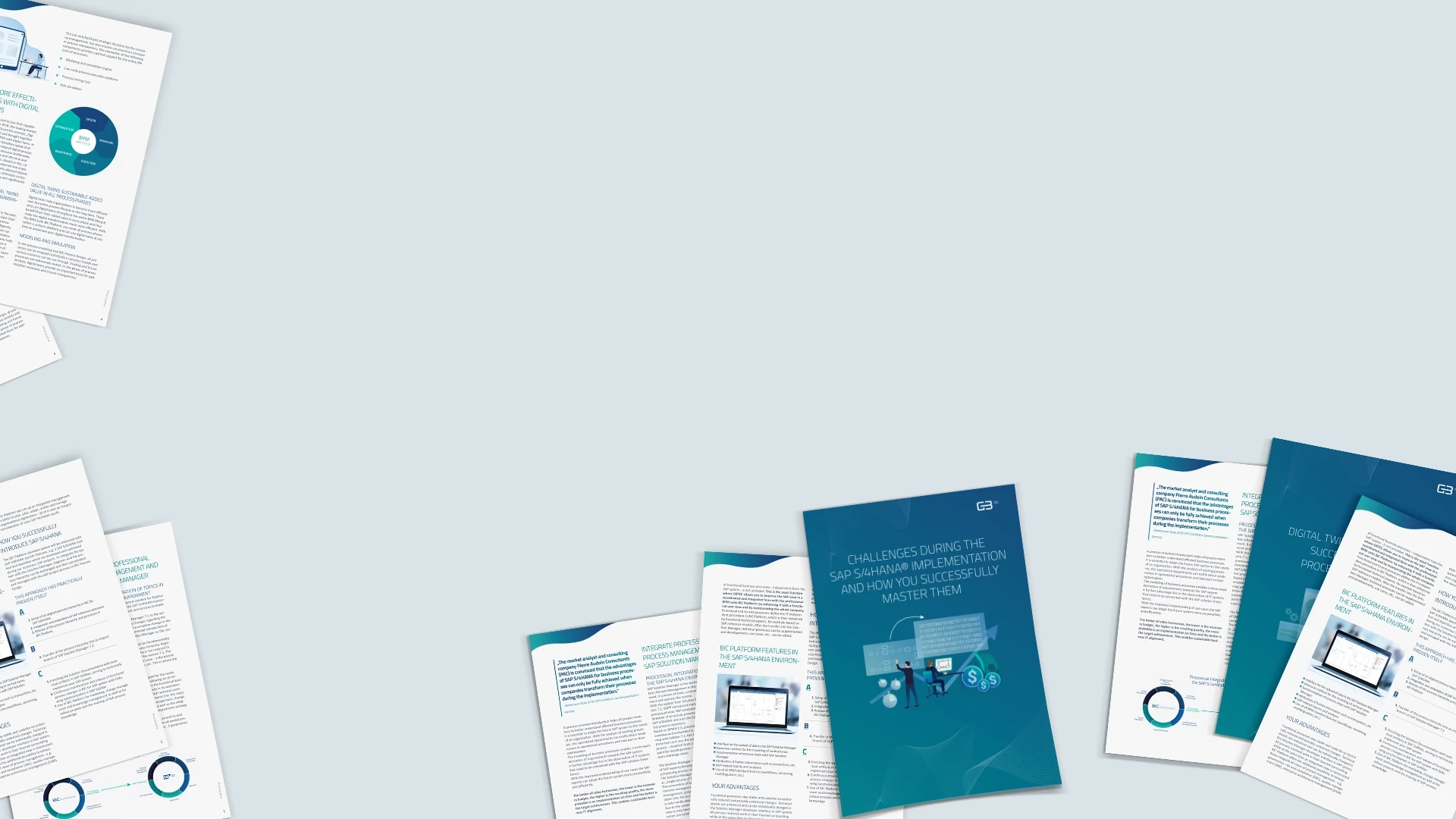BIC Process Design
Understand & Transform
Supercharge your business operations with the most intuitive AI-powered BPM software.
It seems that you come from a German speaking country. Here you can change the language
EnglishTechnical change is on eveyone's mind and doesn't spare any economic branch. The automotive industry in particular is facing new challenges that call decades of know-how into question and create the need to rethink proven processes. But what do new technologies mean for the development of this industry? Which areas are particularly affected? And how can these uncertainties be confronted and successfully contested?
In our whitepaper, you will learn where the biggest challenges in the automotive industry are located, how they can be overcome, and what role Business Process Management can play in this context.

Excerpt